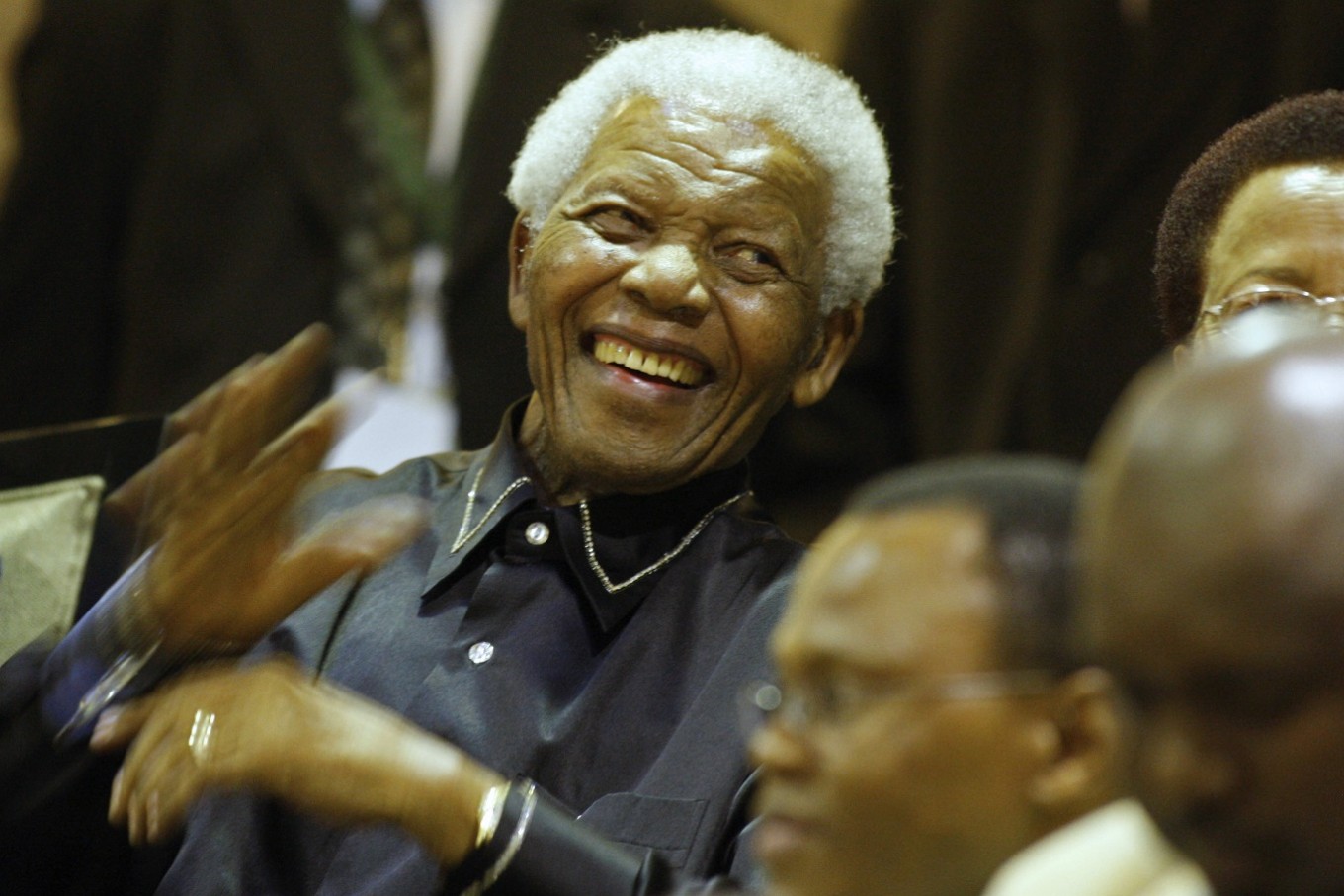Mandela's complex legacy cherished by some, challenged by others
Some people recognize Nelson Mandela's achievement but are also disappointed in the post-apartheid reality.
Change Size
 Mandela's complex legacy is cherished by some, and also challenged by others. (AFP/Schalk Van Zuydam/Pool)
Mandela's complex legacy is cherished by some, and also challenged by others. (AFP/Schalk Van Zuydam/Pool)
A
black and white photo of Nelson Mandela in boxing attire greets visitors to the gym where the liberation hero trained in the 1950s before delivering the knock-out blow to apartheid decades later.
"He used to train here, I feel strong... Physically and mentally I get some strength," said gym-goer Kgotso Phali, 18.
The red and white walls of the gym, located in South Africa's Soweto township, smell of fresh paint.
The Donaldson Orlando Community Centre (DOCC) has been restored to its former glory to celebrate the 100th anniversary of Mandela's birth.
Mandela, South Africa's first black president known locally by his clan name "Madiba", died in 2013.
"People had to carry passes -- all these things are gone now. We are free," thanks to him, said Andy Zameko, who said he was proud to work out in the same gym as Mandela.
Mandela would visit the gym several times a week to train and forget the ordeal that was the fight against the white supremacist regime.
"The walls of... the DOCC are drenched with sweet memories that will delight me for years," Mandela wrote to his daughter Zindzi from his cell on Robben Island where he was imprisoned for 18 years.
A copy of the letter, dated December 9, 1979, is displayed on a wall in the gym.
Nearby, young musicians seek to catch the attention of passing tourists in front of Mandela's former home which has been transformed into a museum.
"(He) makes us united. Now we are all united. (Blacks) can perform in theaters like the Joburg Theatre now -- it was not the case before," said guitarist Vincent Ncabashe, 49.
Read also: Key dates in the life of Nelson Mandela
- 'Not living his dream' -
Others recognize the achievement but are disappointed in the post-apartheid reality.
"Madiba is so inspiring for me," said hip-hop singer Thobane Mkhize who sported a striking bouffant haircut.
"But we are not living his dream," said the 24-year-old musician.
"The parliament is like a (sitcom), it is no longer a parliament because politicians are busy with corruption. Instead of being united, we are busy looking at the colors of the skin," he added.
"There was need for a figure to reconcile black and whites," said Genevieve Assamoi, a 45-year-old from Ivory Coast.
"He was crucial in ensuring that blacks did not take revenge on whites and to allow the whites to feel safe."
"Without him, we would still be stuck in the same place," said policeman and father-of-three Mpho Ngobeni.
Read also: Beyonce leads South Africa anti-poverty festival for Mandela
- 'He did his best' -
At a nearby petrol station in Soweto, two white men in khaki outfits completed the purchase of a car from two young black men -- an unusual scene in the sprawling black-majority township.
"The white people also got a chance (to stay in South Africa)," said Kaelen Viljoen as he struggled to hide the handgun clipped to his belt.
The 22-year-old had also brought along a baseball bat, perched on the front seat of his 4X4.
"I always have a weapon with me and I would not have left it at home when I came here," said Viljoen, visiting Soweto for the first time in his life.
"We called a lot of guys and we were very worried to come here, because he said there are a lot of black people here, and white people driving around here, is going to be a big problem.
"(But) after we met the guys we bought the car from, we actually love it, they are very friendly."
Maxwell Huis, 44, a homeless father-of-two said the reality delivered by Mandela was starkly different to that which he had promised.
"He sold the black people to the whites. There should have been a civil war -- it would have changed things," he added as he foraged for wood to burn.
Mtate Phakela, 19, sees Mandela's legacy very differently.
"He gave us a revolution without a war. He gave us the idea of freedom through peace," said the teenager.
"But we are not economically free."
Economic divisions still plague the country with the median monthly salary for whites at around 10,000 rands ($753) but just 2,800 for the black community.
"He did his best," continued Mtate. "The people who came after could have done better to free us economically."









